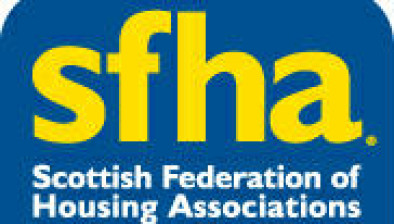ONS reclassification: Bill to ensure RSLs are deemed private bodies to be introduced

The Scottish Government has moved to provide reassurance to Registered Social Landlords (RSLs) by committing to new legislation that will ensure they can continue to borrow money privately.
The announcement follows a decision by the Office for National Statistics (ONS) to classify RSLs as public bodies in the national accounts with effect from 18 July 2001.
If this classification is allowed to stand, all future net borrowing by RSLs would count as Scottish Government expenditure.
The Scottish Government is committed to providing over £3 billion over five years to support delivery of 50,000 new affordable homes. RSLs are estimated to borrow around £300 million a year as private bodies, to support their house building programmes.
The ONS said the decision was made in light of a number of powers that the Scottish Housing Regulator can exercise over RSLs.
The Scottish Government said it will study the reasons behind the ONS decision and draft a new Housing Amendment (Scotland) Bill that will adjust the powers of the Regulator and allow the ONS to reclassify RSLs to the private sector.
It expects that its Bill will contain measures similar to those in the Housing and Planning Act 2016, which addressed the same issue in England when the ONS reclassified housing associations there to the public sector last year.
As foreshadowed in the Programme for Government earlier this month, these measures are likely to remove the need for the Regulator’s consent to the disposal of assets by RSLs; limit the Regulator’s ability to appoint members and managers to RSLs and remove the need for the Regulator’s consent to the restructuring, voluntary winding up and dissolution of RSLs.
Housing minister Kevin Stewart said the Bill will help support the delivery of 50,000 new affordable homes over the next five years.
He said: “The First Minister made clear in Programme for Government that we are committed to RSLs remaining classified as private bodies in the national accounts. In light of the announcement by the ONS, the government will bring forward a Bill to adjust the powers of the Scottish Housing Regulator. This will allow the ONS to reclassify RSLs to the private sector.
“Reclassifying RSLs to the private sector is important as it will ensure their borrowing continues to be treated as private borrowing, which can be used to augment the £3 billion of public investment that the government is providing to support the delivery of 50,000 new affordable homes in the next five years.
“I am pleased that the Scottish Government has reached an agreement with the HM Treasury that will allow progress in delivering this programme to continue whilst the position on classification is being resolved.”
The Scottish Federation of Housing Associations (SFHA) said it is confident that the measures in the forthcoming Bill will address any problematic issues created by reclassification.
Mary Taylor, chief executive of the SFHA, said: “Although the ONS announced its decision to reclassify Scottish RSLs, all of which are housing associations or co-operatives, as ‘public non-financial corporations’, we are aware that Scottish Government will be taking legislative steps designed to effectively reverse this decision and ensure that it will be ‘business as usual’ for our members going forward.
“As was the case in England, the ONS decision is based on certain powers available to the regulator, which in our case means the Scottish Housing Regulator, which appears to give the state an element of ‘control’ over RSLs.
“We will, of course, carefully examine the substance and detail of the ONS’s decision, but we confidently anticipate that the measures to be introduced as part of the forthcoming Housing Amendment (Scotland) Bill will address this issue. The changes made over the years to the regulatory framework have already achieved a degree of separation of housing associations from public control, so future changes will be consistent with that trend.
“We have received assurances from Scottish Government that this will not affect housing associations’ private borrowing in the immediate future. We will continue to liaise closely with Scottish Government and our members.”
Echoing the sentiment, Glasgow and West of Scotland Forum of Housing Associations (GWSF) director, David Bookbinder, said: “Community controlled housing associations aren’t going to relish being deemed to be public bodies, but we’re confident this is a temporary state of affairs.
“It has been reassuring to hear both ONS and the Scottish Government confirm that the decision has no impact at all on associations’ ability to borrow.
“And we very much welcome the Scottish Government already having plans in place to make legislative adjustments to the regulatory framework which should lead to a reversal of the reclassification. We’re fully confident that the adjustments shouldn’t give lenders or tenants any cause for concern about the Scottish Housing Regulator’s ability to regulate the sector effectively.”
The Scottish Government has discussed its plans to legislate with the Regulator, and bodies representing RSLs, their tenants and lenders, and confirmed that it would continue discussions with them during the development of the Bill.









